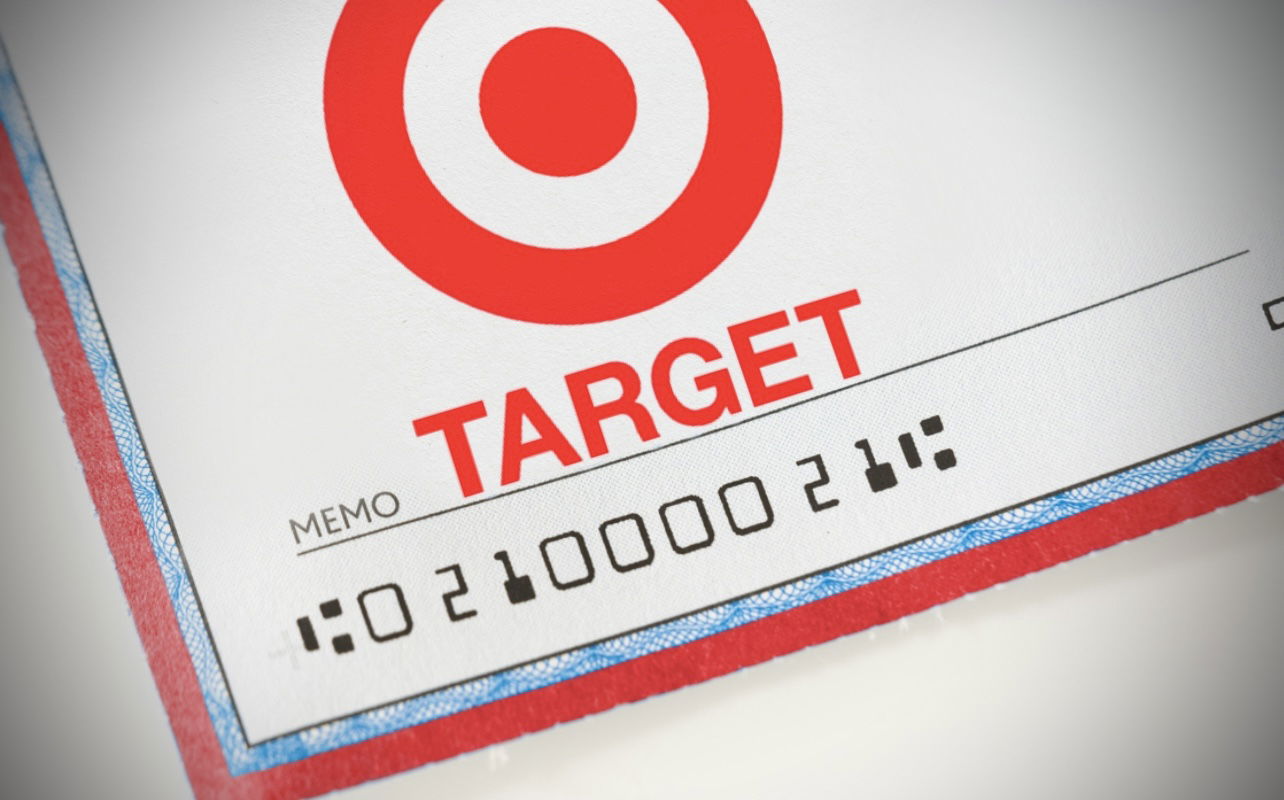
July 8, 2024
Did Target Just Start The Beginning Of The End For Check Writing?
Target has indicated via a statement released to the Minneapolis Star-Tribune that it intends to end accepting personal checks by July 15
In a statement released to the Minneapolis Star-Tribune, retail giant Target said it intends to end accepting personal checks by July 15, and a company representative cited a low volume of the payment method as a reason for the move. Target has been emphasizing its Target Circle Cards, which can be linked to your bank account, effectively eliminating the need for a personal check to be used. The store also takes cash, digital wallets, SNAP/EBT cards, buy now/pay later services, and credit/debit cards.
According to the statement, Target company spokesperson Brian Harper-Tibaldo said, “Target is committed to creating an easy and convenient checkout experience, and that includes providing our guests with numerous ways to pay, including our new Target Circle Cards (formerly known as Target RedCard); cash; digital wallets; SNAP/EBT; buy now, pay later services; and credit and debit cards,” Harper-Tibaldo wrote. “Due to extremely low volumes, we’ll no longer accept personal checks starting July 15. We have taken several measures to notify guests in advance to aid an easy and efficient checkout experience.”
Although the store will no longer be accepting personal checks at the point-of-sale, Target will still allow personal checks to be sent in the mail as a form of payment for its Circle Card credit card statements. According to the most recent data from the Federal Reserve, out of an average of 46 payments made each month by the average American consumer, only one was made via personal check. In the 80’s and 90’s, the personal check was a common form of payment, but with the rise of credit and debit cards and also digital forms of payment, check writing has become a much less common form of payment.
According to Elisa Tavilla, the director of debit adviser services for payments and banking consultancy at Javelin Strategy and Research, the pandemic exacerbated this shift towards digital payments as well as the use of apps like Zelle and CashApp that are used to send money digitally from peer to peer. As Tavilla told the Star-Tribune, check writing also slows down the process of collecting payment. “Certainly at the point of sale, it creates friction and can slow down the checkout process for other customers because it requires more manual entry.”
Target’s official site does still list personal checks, but does not accept the following forms of payment at its stores: foreign checks and currency (depending on location, stores may be able to accept Canadian dollars or Mexican pesos), mall certificates and chamber bucks (select stores accept payments using mall certificates or chamber bucks, you have to call your local store to find out), money orders and cashier’s checks, business checks, and merchant gift cards (with the notable exception of Starbucks gift cards, which can be used at the in-store Starbucks registers.)
Target is not the only store that doesn’t accept personal checks, however, according to Javelin Strategy and Research, neither ALDI nor Whole Foods accept personal checks as payment in their stores. According to Host Merchant Services, the prevailing view among businesses that do not accept personal checks as payment is that other forms of payment are inherently less risky for the merchant. “For a retailer, there is always a certain degree of risk when they accept personal checks. The majority of the checks are not certified, and even those that are certified can be faked by deceitful actors. Accepting checks for payment carries the chance that the retailer is giving away the product for free. There are no easy ways to quickly verify a sufficient bank balance to cover the check, so the risk of a bounced check is always present and can carry serious repercussions for businesses.”
They continued, “Many companies have outright stopped accepting personal checks. The predominant view is that cash, cards, or online transactions are safer and a more efficient form of payment method. Unlike checks, they reduce processing times to receive funds, don’t constrain budgets or staff resources, nor do they require any hassle around extensively depositing, reconciling, and accounting for payments.”